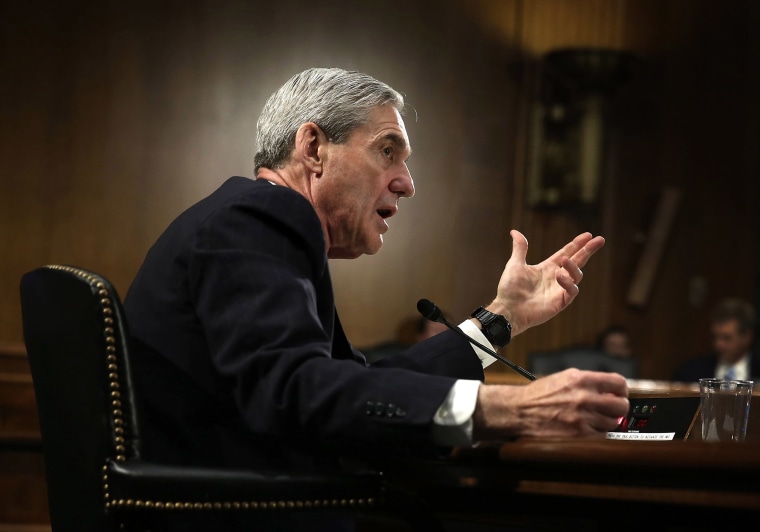News analysis
WASHINGTON — House Republicans and their allies have long argued that the House memo released Friday would demonstrate that the Trump-Russia investigation had its roots in an FBI fraud.
But the Republican memo doesn’t support that theory, even if everything alleged in it is true. (And Democrats, the FBI and the Justice Department insist that much in the memo is deeply misleading.)
Before the memo was released, House Republicans said it would show that the entire investigation by special counsel Robert Mueller was based on an improper act: a reliance by the FBI on a tainted dossier, funded by Democrats and written by a former British intelligence operative.
Judicial Watch’s Tom Fitton, a right-wing activist cited on Twitter Friday by President Donald Trump, has called the Mueller investigation the “fruit of the poison tree” that “needs to be shut down.” The poisonous-tree legal metaphor means, essentially, that if the government obtains evidence from illegal acts, it can’t use that evidence to prosecute somebody.
But now that the memo is out, such arguments have been called deeply into question. As the memo makes clear, the Mueller investigation did not grow out of the dossier, and the memo sheds no light on what role, if any, the dossier has played in the special counsel’s inquiry.
The memo argues that the FBI misled the Foreign Intelligence Surveillance Court about the basis for its application to eavesdrop on a former Trump campaign aide, Carter Page. That surveillance began in October 2016, after the investigation was well under way. It was renewed another three times, the memo says — twice during the Trump administration. In all, a Democratic congressional source told NBC News, four separate federal judges examined the matter, under a detailed process that requires the FBI agent to say how she knows all the facts she is asserting.

But as the memo itself makes clear, the FBI investigation into possible Trump campaign collusion began in July 2016, and did not center on the dossier.
The memo points out that it was information about a different Trump aide, George Papadopoulos, that led the FBI to begin investigating. According to The New York Times, an Australian diplomat passed on a tip that Papadopoulos seemed to know that the Russian government had access to Democratic emails.
So the Page surveillance, whatever the problems with it, can’t fairly be called the fruit of the tree that became the sprawling Mueller investigation. In fact, it’s not clear if Page is still relevant to the current investigation.
Republicans say the FBI withheld important facts from the judges about the Page surveillance application; Democrats and the FBI say that is not true. That is an interesting dispute, but it sheds no light on the question of whether the Trump campaign colluded with Russia, or whether the president obstructed justice.
But even if the memo doesn't prove what Republicans said it would, it may still have achieved something significant for Trump and his allies. It provides grist to those people — including Trump himself — who are searching for any kind of evidence that the criminal investigation of the president is improper. It’s a formerly top-secret document that muddies up the water, vaguely suggesting that all is not well with Mueller’s probe.
It may pave the way for Trump to stop cooperating with the investigation, for example, or to decline to be interviewed by Mueller, citing bias.
"I think it’s a disgrace what’s going on in this country," Trump said in the Oval Office, just after he declassified the memo. "A lot of people should be ashamed of themselves and much worse than that."
Democrats say it is Trump and House Republicans who should be ashamed.
"The release of this memo by House Intelligence Committee Republicans and the White House, over the objections of the FBI and the Department of Justice, is reckless and demonstrates an astonishing disregard for the truth,” said Sen. Mark Warner of Virginia, the ranking Democrat on the Senate intelligence committee.